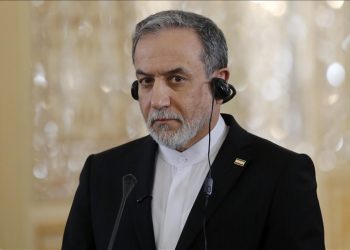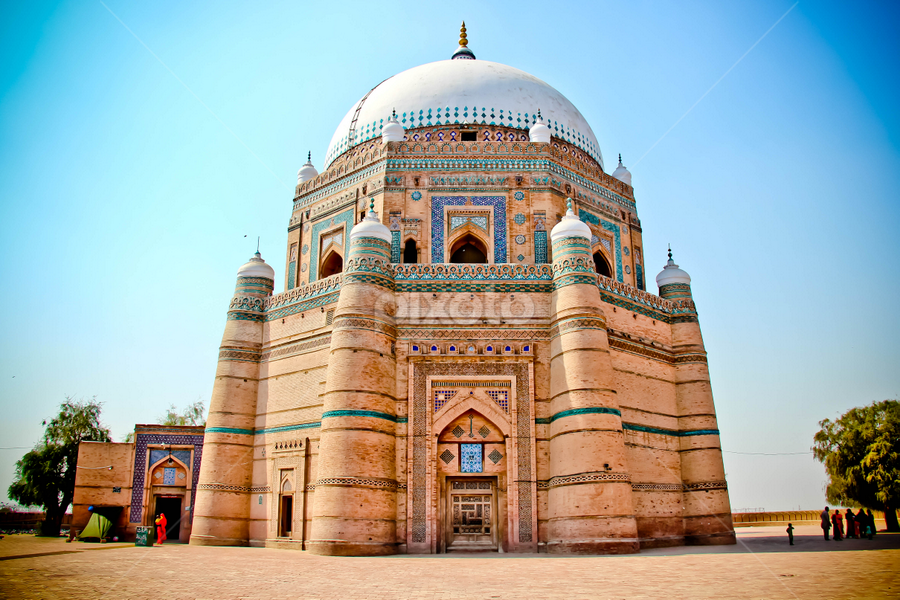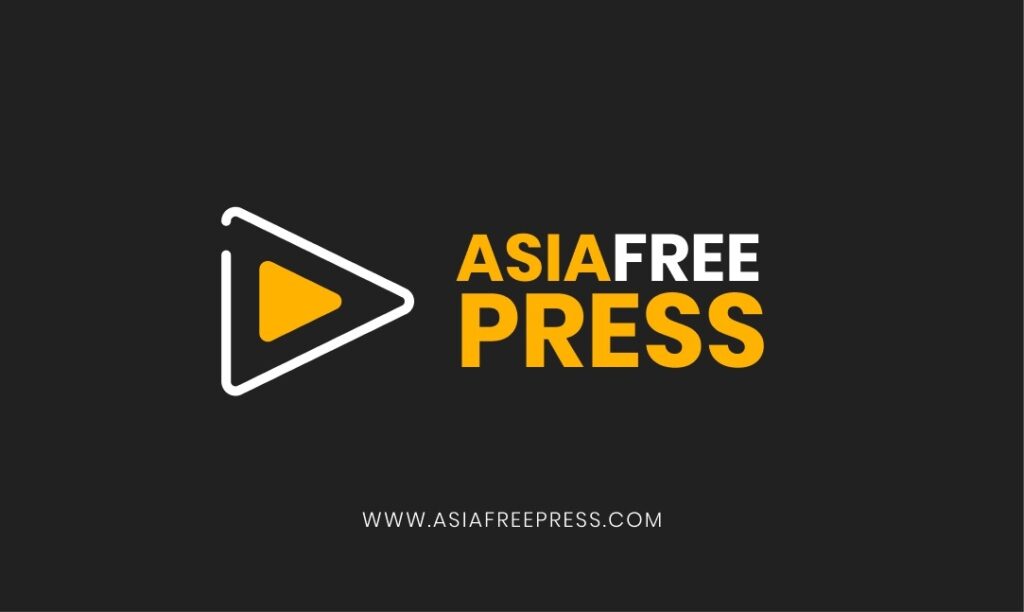Tianjin’s Hexi District has transformed into a vibrant showcase, adorned with flower displays and cultural murals, as the city prepares to host the largest-ever Shanghai Cooperation Organisation (SCO) Summit. From August 31 to September 1, leaders from over 20 countries and heads of 10 international organisations will gather here to explore new paths of cooperation. Colourful banners flutter along Tianjin’s streets, extending a warm invitation to the world and symbolising the high hopes riding on this meeting of minds.
As China holds the SCO’s rotating presidency, President Xi Jinping will welcome counterparts from across Eurasia, South Asia and beyond to Tianjin, a city now in the global spotlight. The timing is significant: this 25th Heads of State Council meeting comes as the world undergoes ‘turbulence and transformation’. A multipolar order is emerging with the Global South gaining momentum, yet counter-currents of hegemonism, protectionism and conflicts persist. In this context, the Shanghai Spirit, the core ethos of the SCO, takes centre stage. It is no exaggeration to say, as Chinese Foreign Minister Wang Yi affirmed, ‘The Shanghai Spirit is the very root and soul of the SCO’. This foundational philosophy will guide discussions in Tianjin on how the SCO can bolster regional stability, development, and a fairer world order.
The Shanghai Spirit: Root and Soul of the SCO
From its inception in 2001, the SCO distinguished itself with a unique code of conduct: the ‘Shanghai Spirit’. This spirit comprises six guiding values that shape all cooperation within the bloc. These are:
Mutual Trust
Mutual Benefit
Equality
Consultation
Respect for Diversity of Civilisations
Pursuit of Common Development
Together, these principles ‘illustrate what a new type of international relations should be.’ It rejects zero-sum mindsets and power politics, instead emphasising respect and win-win collaboration. Under the Shanghai Spirit’s guidance, the SCO has grown into a ‘mature and robust organisation’ with ‘strong vitality’, as President Xi Jinping noted. It now spans the world’s largest regional bloc, covering roughly 42% of the global population and over 20% of global GDP. Indeed, the SCO ‘represents nearly the entire Global South, making it a larger organization than BRICS’ in scope.
Importantly, the Shanghai Spirit aligns closely with the principles of the United Nations Charter and the Five Principles of Peaceful Coexistence. It transcends old Cold War paradigms and civilizational clashes. By championing mutual respect and non-interference, the SCO offers an alternative framework for international cooperation, one that many developing nations find appealing. Russian Foreign Minister Sergei Lavrov has lauded this ethos, noting that commitment to the Shanghai Spirit has yielded ‘remarkable cooperation outcomes’ and serves the ‘shared interests of the member states’, demonstrating its ‘strong vitality.’ In short, the Shanghai Spirit is both the glue holding the SCO together and the lodestar guiding its future.
At the Tianjin Summit, leaders are expected to reaffirm this spirit as the bedrock of collaboration. ‘Stay true to its founding mission and carry forward the Shanghai Spirit,’ was Wang Yi’s first of five proposals for the SCO’s future. President Xi Jinping urged member states to remain ‘torchbearers’ of the Shanghai Spirit so that it ‘continues to light the way’ toward an SCO community with a shared future. This poetic imagery emphasises a practical reality: only by upholding trust, equity, consultation and mutual gain can a diverse group of nations, ranging from rivals India and Pakistan to giants like China and Russia, find common ground.
A Platform for the Global South’s Aspirations
The forthcoming summit comes at a time when the Global South is asserting its voice on the world stage. Long-standing inequities in global governance and economic order have galvanised developing countries to seek more inclusive forums. The SCO has increasingly become one such platform, a vehicle for ‘Southern multilateralism’ where non-Western powers set the agenda. ‘The SCO, endowed with vast geopolitical, economic, and human resources, is uniquely positioned to be a foundational pillar of the emerging multipolar world order,’ argues Iran’s foreign minister Abbas Araghchi. As a bloc that includes China, Russia, Pakistan, India, Iran and Central Asia and engages observers and dialogue partners from Afghanistan to Türkiye to ASEAN, the SCO indeed brings together a formidable portion of the Global South.
Recent events have highlighted this role. In July, at the SCO Foreign Ministers’ meeting preparing for the summit, Araghchi praised the SCO’s support for Iran against external aggression. After Iran suffered illegal strikes on its territory by Israel and the United States, acts widely condemned as violations of the UN Charter, the SCO unanimously stood by Iran’s sovereignty. Araghchi urged member states to ‘speak with one voice as the recognised representative of the Global South’ in defending international law and principles of non-interference. He proposed practical steps for the organisation: a mechanism to monitor and respond to military aggression, a centre to counter unilateral sanctions and protect member economies, and closer media cooperation to combat ‘biased narratives’ from hegemonic powers. Such initiatives speak directly to challenges faced by many developing nations from sanctions and external meddling to information warfare, and underscore how the SCO can serve as a shield for its members.
Indeed, the SCO’s expanding membership reflects the Global South’s search for alliances that champion their interests. Iran formally joined as a full member in 2023, and Belarus in 2024. Key Arab states like Saudi Arabia, Egypt, Qatar and the UAE have recently become SCO dialogue partners, drawn by the group’s growing clout. As Egypt’s Council of Foreign Affairs noted at a seminar in Cairo, ‘the SCO is an important platform for… the countries of the Global South’ to deepen political and economic cooperation on their own terms. The appeal lies in the SCO’s emphasis on equality and respect for diversity; smaller nations can engage with giants without feeling overshadowed. Unlike Western-led institutions, the SCO operates by consensus and eschews sanctioning or lecturing members on internal issues. This model of partnership resonates in the Global South.
At Tianjin, leaders are poised to adopt a ‘Tianjin Declaration’ and a new ‘SCO Development Strategy for the Next Decade’. These documents will likely chart out how the organisation can concretely advance development and connectivity among members. Economic cooperation is a rising priority:
‘Development is of paramount importance and holds the master key to all problems,’ Wang Yi, Chinese Foreign Minister.
Under China’s chairmanship, there is a push to synergise national development strategies with Beijing’s Belt and Road Initiative for greater infrastructure investment and trade linkages. The aim is to boost industrial and supply chain integration across Eurasia, foster innovation and digital economy cooperation, and ensure growth leaves no one behind. For the Global South, this kind of South-South economic integration is crucial to reducing dependence on Western markets and financial systems.
In addressing security, the SCO also directly tackles issues pertinent to its members. The group’s Regional Anti-Terrorist Structure (RATS) coordinates against the ‘three evils’ of terrorism, separatism and extremism – threats that have plagued Central and South Asia. Afghanistan, an observer state, remains a focal point: ‘Afghanistan is an important member of the SCO family… Efforts should be made to support Afghanistan’s reconstruction and development’ for long-term peace. Counterterrorism drills, intelligence sharing, and perhaps new crisis-response mechanisms (as suggested by Iran) are on the agenda. Likewise, the Middle East instability is not ignored, Chinese officials criticised the ‘use of force against Iran’s sovereignty’ as undermining international law, reinforcing the message that the SCO stands against unilateral military actions in the region.
In short, the SCO provides a framework for collective self-reliance: whether in security (through joint drills and dialogues), in finance (exploring local currency settlements and development banks), or in technology and culture (sharing expertise and student exchanges). It is building what President Xi calls a ‘community with a shared future for mankind,’ where development and security are pursued together. While such phrases may sound idealistic, they carry weight when backed by the combined resources of members that span a huge swath of Eurasia. Notably, President Xi urged the SCO to ‘unite and lead the Global South’ in working for a more just global governance system, a signal of the bloc’s ambition to shape international norms in forums like the UN, IMF, or World Bank to be more favourable for developing countries.
Geopolitical Significance and Challenges
The Tianjin Summit will be closely watched by observers worldwide, not least in Western capitals. The SCO’s evolution is often seen through a geopolitical lens: a counterweight to Western alliances and a cornerstone of Eurasian integration led by China and Russia. Indeed, Beijing and Moscow, co-founders of the SCO, view it as a strategic platform. President Xi Jinping has called the SCO ‘important for maintaining peace, stability and development on the Eurasian continent,’ urging China and Russia to ‘continuously inject new momentum’ into it. Both powers see the SCO as a vehicle to promote multipolarity and diminish U.S. hegemony. The organisation explicitly opposes ‘hegemonism, power politics and bullying,’ advocating an ‘equal and orderly multipolar world’ and more inclusive globalisation. In practical terms, this means standing against coercive sanctions, military interventions without UN mandate, and trade protectionism, all issues that have affected SCO members. For the Global South at large, these stances represent a pushback against a world order long dominated by a few wealthy nations.
At the same time, the SCO is not an anti-Western military bloc like a new Warsaw Pact, and it’s important to note the nuance. It’s a forum for cooperation that includes countries with varying alignments: India, for example, is also a member of the Quad with the US and Japan, yet it finds value in the SCO. This diversity is both a strength and a challenge. New Delhi’s relations with Beijing and Islamabad have been fraught, and its strategic vision sometimes differs from that of Beijing or Moscow. Yet, the fact that India and Pakistan sit at the same table under the SCO framework is significant. It provides a rare venue for dialogue between them outside bilateral channels. In Beijing last month, Chinese and Indian officials agreed that as two major developing countries, they ‘should be partners that help each other succeed’, pushing a ‘Dragon-Elephant Tango’ as ‘the right choice for both sides.’ Such rhetoric, accompanied by commitments to resume cooperation, suggests that the SCO can help ease tensions through the norm of consultation and mutual respect. All member states, despite their differences, pledged in July to ‘further carry forward the Shanghai Spirit, strengthen solidarity… and resolve hotspot issues through dialogue and negotiation’. In a fragmented world, this commitment to diplomacy is refreshing.
Of course, forging consensus in a group so varied is not easy. The SCO operates by consensus, which means progress can be slow and statements watered down. Critics sometimes dismiss it as a “talk shop.” However, its achievements should not be overlooked. Over 20 years, it has settled border disputes, coordinated security against terrorism, expanded trade (intra-SCO trade and investments have grown steadily), and now, with its expansion, has become a bridge between Asia’s different regions. ‘The SCO has charted a distinct path to promoting global governance, serving as a key anchor for stability and certainty,’ notes Li Lifan of the Shanghai Academy of Social Sciences. By addressing both traditional and non-traditional security threats and ‘steadfastly supporting multilateralism’, the SCO fills a void in a world where Western-led multilateralism has often fallen into crisis. In Tianjin, the presence of observers like the UN Secretary-General (the UN is an official guest invitee in SCO summits) will emphasise the SCO’s growing role in complementing global governance efforts.
A New Chapter at Tianjin
The Tianjin Summit is expected to be more than a ceremonial gathering; it will be a ‘strategic milestone’, setting the tone for the coming decade. A draft of the SCO 2035 Development Strategy has already been agreed upon by the foreign ministers, outlining goals for the next ten years. This likely includes deeper economic integration, more connectivity projects (railways, ports, energy pipelines linking member states), cooperative steps in health, education, and technology, as well as coordinated positions on global issues like climate change and reform of multilateral institutions. The Tianjin Declaration, to be issued by the heads of state, will presumably articulate the SCO’s collective vision in light of the 80th anniversary of the end of World War II (a notable date for China and Russia in particular). According to some previews, it will emphasise principles of multipolarity, non-interference, and equitable development, essentially codifying the Shanghai Spirit for a global audience.
For the Global South, a strong, united SCO could be a game-changer. It boosts the bargaining power of developing nations by uniting several major ones under shared positions. Whether in advocating for reforms at the World Bank/IMF or pushing for diplomatic solutions in conflict zones, the SCO’s voice can amplify that of its members. Already, as mentioned, it has taken clear stands: condemning unilateral military strikes, calling for Afghanistan’s reconstruction, and rejecting protectionism. Going forward, the SCO might expand cooperation with other Southern groupings like BRICS or the African Union, weaving a wider tapestry of South-South cooperation. The presence of observers from ASEAN, CIS, and Turkmenistan at the SCO forums hints at a convergence of regional bodies around common goals.
Finally, it’s worth noting the hopeful sentiment around this summit. Wang Yi has expressed confidence that, with joint efforts, the Tianjin Summit will surely be a complete success, and the SCO will enter a new stage of high-quality development. The festive atmosphere in Tianjin, a city decked out to celebrate cooperation, mirrors a broader optimism in the Global South that perhaps a more balanced world order is on the horizon. The challenges are undoubtedly immense, from economic headwinds to geopolitical rivalries, but the SCO’s approach of patience, dialogue, and mutual support offers a constructive way forward.
In Tianjin, anchored by the Shanghai Spirit, the leaders of the SCO have the opportunity to turn that rhetoric into reality to deliver tangible initiatives for their people and a strong message to the world that the Global South’s solidarity is rising, peaceful development is achievable, and that a cooperative multipolar future is not just a vision but an unfolding reality. The success of the Tianjin Summit will be measured in these terms. If the SCO can inject even a bit more stability and positive energy into the world, it will have been worth applauding in newspapers far beyond Asia.
— Sabah Aslam is the Founder and Executive Director of the Islamabad Institute of Conflict Resolution (IICR), with expertise in counterterrorism, security studies, and post-conflict reconstruction. She is currently pursuing a PhD in Political Science and International Relations, with a research focus on New Wars and modern terrorism. An alumna of the European Union Visitors Programme (EUVP), Ms. Aslam is also an established columnist and international speaker on security policy and geopolitical affairs.



















